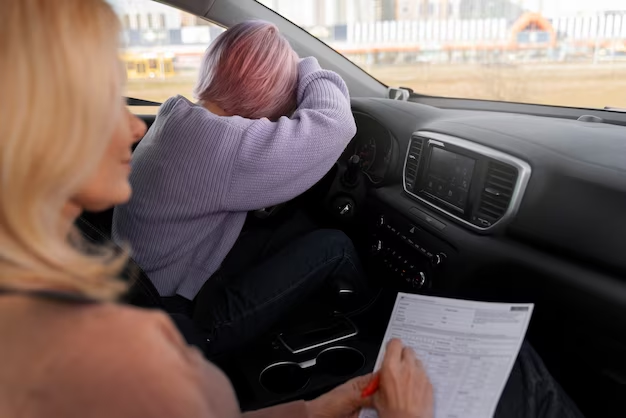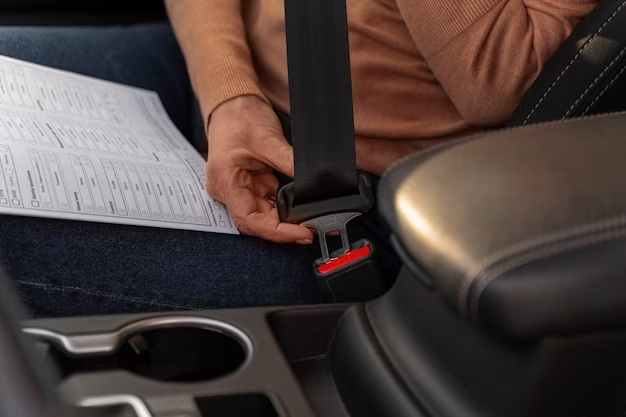Obtaining a driving license can often feel like an exciting yet daunting task for many. At its core, the process involves a journey through driving schools, passing road tests, and understanding the nuances of paying traffic regulations. The key to a smooth experience is knowledge—knowing what steps you will need to take, what requirements must be met, and when you can apply for your license.
Understanding Driving License Requirements
Before you can hit the road, you need to be aware of the requirements for getting a driving license. Different regions have varying rules, but generally, candidates must pass both theoretical and practical driving tests. You will need to enroll in a certified driving school where you’ll learn the ins and outs of driving, traffic laws, and safety precautions. Only after completing the required hours of both classroom instructions and behind-the-wheel training can you proceed to the next step.
Choosing the Right Driving School
Selecting a driving school is critical to your success. You should consider factors such as the school’s pass rate, the quality of the instructors, and the types of vehicles used for training. Driving schools not only prepare you for road tests, but they could also offer valuable insights on how to maintain composure and confidence while driving. Additionally, they are usually well-versed in the latest traffic laws and can help ensure you’re paying traffic rules the attention they deserve.

The Road Test: Demonstrating Your Driving Skills
The road test is a pivotal point in the driving licensing process. It’s where you must demonstrate your newfound skills and show that you can handle a vehicle safely. To pass the road test, you will need to exhibit control over the car, adherence to traffic laws, and the ability to perform various maneuvers such as parking, turning, and stopping.
- Vehicle operation and control
- Observation and signaling
- Turning and intersection behavior
- Parking and reversing maneuvers
- Adherence to traffic signs and regulations
Paying Traffic Fines and Understanding the Consequences
Driving comes with responsibilities, and one of those is paying traffic fines promptly when they’re incurred. Fines can be issued for a range of reasons, from speeding to failing to yield. It’s essential to understand that accumulating violations could jeopardize your chances of getting or keeping your license. Therefore, driving safely and lawfully is not just a matter of certification, but also a continuous commitment.
Going International: The Validity of Your License Abroad
For those who plan to drive in foreign countries, an international driving permit might be necessary. While many countries recognize driving licenses from other nations, an international driving permit will often provide the necessary validation. To secure a valid international driving permit, you can apply through specific motoring associations, and you’ll typically need to present a valid driver’s license from your home country.
The Importance of Carrying Valid International Insurance
When driving abroad, international insurance is another critical consideration for international drivers. Not only is it legally required in numerous countries, but it provides protection against potential accidents or mishaps that occur while overseas.
| Type of Insurance | Coverage | Required/Optional |
|---|---|---|
| Liability | Damages to other vehicles and medical costs | Usually Required |
| Collision | Damages to your vehicle | Optional |
| Comprehensive | Theft, natural disasters, and other damages | Optional |
Renewing Your License and Keeping it Current
Staying legal on the road doesn’t end with your initial driving test success. Your license will need renewal after a certain period, which varies by jurisdiction. As the renewal date approaches, it’s crucial to be aware of the deadlines and any additional requirements such as vision tests or updated photos. Renewal procedures may have changed since your last visit to the DMV, so it’s important to check for any new regulations or the possibility of online renewal to save time.
- Completing a renewal application.
- Paying the renewal fee.
- Passing any required tests, such as a vision screening.
Failing to renew your license on time could result in fines or even suspension. Remember, driving with an expired license is illegal and could also increase the severity of penalties should you be involved in a traffic violation or accident.

Advanced Driving Courses and Defensive Driving
Even after obtaining a license, your education and improvement as a driver need not stop. Advanced driving courses and defensive driving can apply to drivers who desire to enhance their skills. These courses could also lead to reduced insurance premiums and better preparedness for unexpected road situations. You will learn advanced techniques for handling your vehicle in various conditions and gain insights into anticipating other drivers’ actions.
- Improved driving skills and road awareness.
- Potential for lower car insurance rates.
Becoming a more skilled driver not only makes the roads safer for everyone but could also save you money in the long run. Remember, the best drivers are those who remain students of the road throughout their driving careers.
Dealing with Driving License Suspension and Revocation
Unfortunately, certain circumstances might lead to the suspension or revocation of a driving license. Common reasons include accumulating too many penalty points from traffic violations, driving under the influence, or other severe infractions. It is crucial to understand the steps you will need to take to regain your driving privileges, which might include attending remedial classes, re-taking the driving test, or undergoing a certain period without driving.
To prevent such consequences, adhere strictly to traffic rules and understand the gravity of severe infractions. Remember that the privilege to drive is just that—a privilege, which can be rescinded if abused.
Keeping Up with Traffic Law Changes
Traffic laws and regulations are constantly evolving, with new rules being implemented for safety, environmental, or technological reasons. As a responsible driver, you should stay informed about these changes. This could involve signing up for notifications from the local DMV or road safety authority, regularly checking their website, or attending refresher courses at driving schools.
Staying current with laws will help you avoid unintended infractions and ensure that your driving practices remain within legal bounds. It also demonstrates your commitment as a driver to road safety and consideration for fellow road users.

Frequently Asked Questions
Q: How long is a typical driving school course?
A: The length of a driving school course varies by region and individual pace, but most require a set number of classroom and behind-the-wheel hours. On average, expect to spend anywhere from a few weeks to several months to complete a course.
Q: What should I do if my driver’s license is lost or stolen?
A: If your driver’s license is lost or stolen, report it to the DMV as soon as possible to prevent identity theft. You will likely need to fill out paperwork and pay a fee for a replacement. It’s also a good idea to file a police report.
Q: Is passing the road test enough to get my driver’s license?
A: Passing the road test is a significant step, but you will also need to pass a written exam that tests your knowledge of traffic laws and signs. Additionally, you need to fulfill any age-specific requirements and provide the necessary identification documents.
Q: Can I use my driving license to drive in another country?
A: In many cases, you can use your domestic driving license to drive in another country, especially if there are reciprocal recognition agreements. However, obtaining an international driving permit is recommended for broader acceptance and ease of translation.
Q: How can I reduce my car insurance rates as a new driver?
A: While rates tend to be higher for new drivers, you can potentially reduce them by taking defensive driving courses, maintaining a clean driving record, choosing a car with safety features, and shopping around for the best insurance quotes. Some insurers also offer discounts if you’re a student or if you bundle your auto insurance with other policies.









